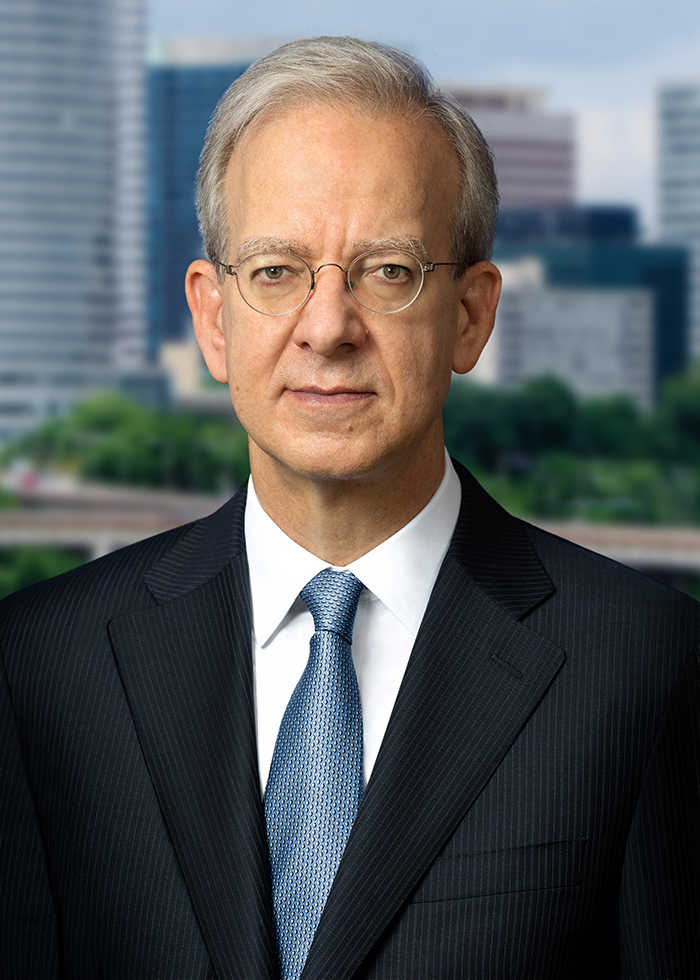Richard Klingler, a partner based in Washington, D.C., has extensively litigated administrative law, constitutional law, cross-border, and commercial issues in federal courts, especially the Courts of Appeals and the U.S. Supreme Court. His cases often involve clients in the telecommunications, finance, energy, and property development sectors, and often address antitrust or national security issues or claims against foreign sovereigns or their commercial partners. For more than two decades, Richard practiced law with Sidley Austin LLC, principally as a full equity partner in the Appellate and Regulatory Litigation practice groups. Since joining Ellis George in 2021, he has represented various parties in arbitrations and mediations, defended clients in property development disputes, and represented clients pursuing claims against the Kingdom of Saudi Arabia and related financial parties, the Taliban, Sudan, and commercial partners of the Cuban government.
Richard has successfully challenged regulations issued by the Securities and Exchange Commission, the Board of Governors of the Federal Reserve, and the FDIC, building on his five years of work as a transactional investment banker with Credit Suisse First Boston. He has a lengthy record of advising and litigating merger-related and regulatory disputes on behalf of AT&T Corp. and other clients, and early in his career worked as an in-house lawyer for Australia’s leading telecommunications company. His work on administrative law, counter-terrorism, privacy, national security, and related issues is informed by his service in the White House, first as Associate and then Senior Associate Counsel to President George W. Bush and as the Legal Advisor and General Counsel on the staff of the National Security Council. He served two terms as a Public Member of the Administrative Council of the United States, and early in his career was an Adjunct Fellow at the American Enterprise Institute (addressing counter-terrorism issues) and a Guest Scholar at the Brookings Institute, which published his book, The New Information Industry: Regulation and the First Amendment (1996). He serves on the board of the National Veterans Legal Services Program, has testified repeatedly before Congress, and has written for various national and specialized publications.
Richard served as a law clerk to Justice Sandra Day O’Connor and to Judge Kenneth W. Starr. He holds a J.D. and A.B. (History) from Stanford University and a B.A./M.A. from Oxford University (St. John’s College), which he attended as a Rhodes Scholar.
Education
- Stanford Law School, J.D., 1988;
- St. John’s College, Oxford University, B.A. (Juris.), 1985 (M.A.)
- Stanford University, A.B., 1983
Bar Admissions
- District of Columbia
- Pennsylvania (inactive)
Court Admissions
- U.S. Supreme Court
- U.S. Court of Appeals for the District of Columbia Circuit
- U.S. Court of Appeals for the Federal Circuit
- U.S. Court of Appeals for the Second Circuit
- U.S. Court of Appeals for the Fourth Circuit
- U.S. Court of Appeals for the Fifth Circuit
- U.S. Court of Appeals for the Ninth Circuit
- U.S. Court of Appeals for the Eleventh Circuit
- U.S. Court of Appeals for Veterans Claims
- U.S. District Court for the District of Columbia
- U.S. Court of International Trade
- District of Columbia Court of Appeals



